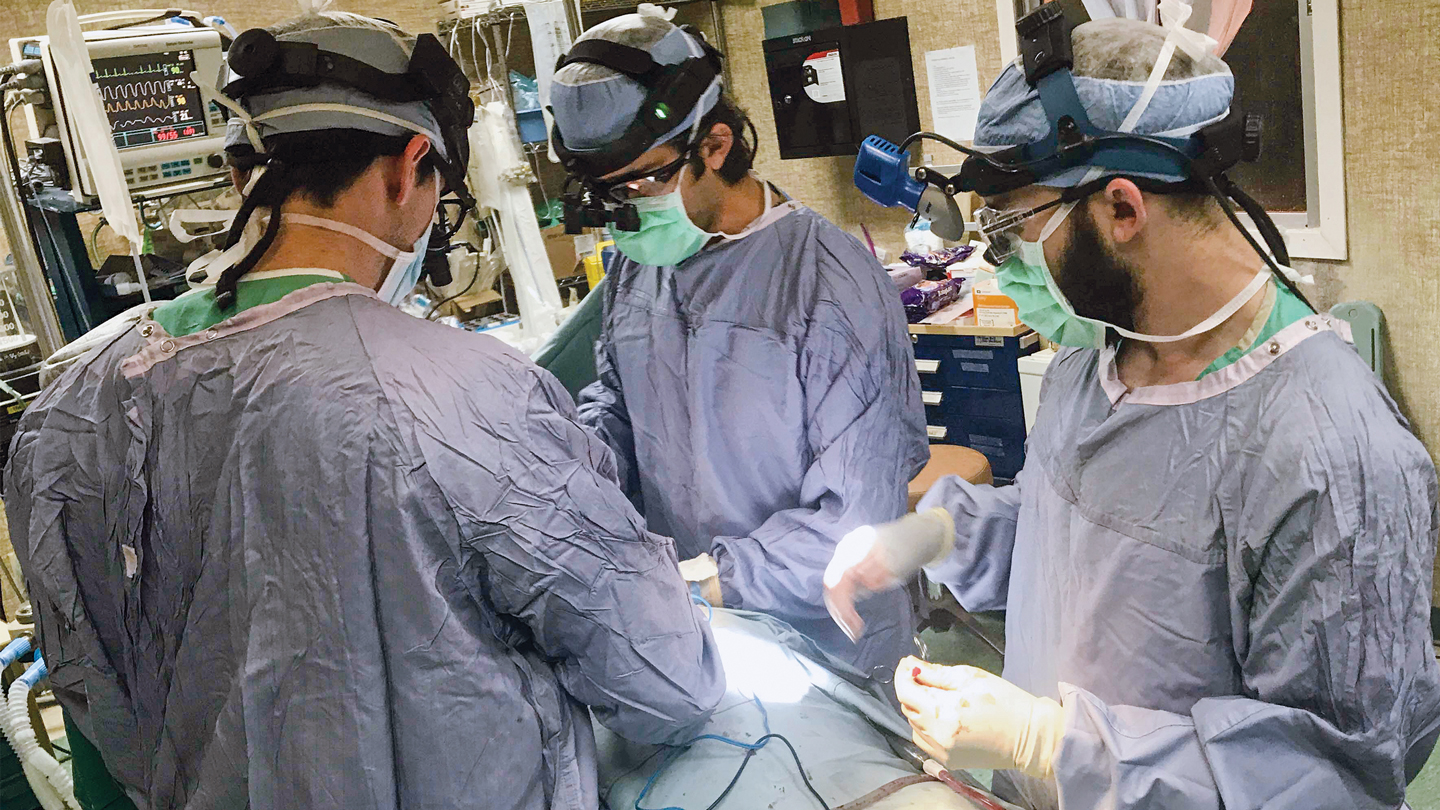
Giving Voice to Service
Physician finds passion in medical mission work
On campus, John Sinacori, MD, Associate Professor of Otolaryngology — Head and Neck Surgery, treats a variety of voice-disorder patients from teachers to opera singers. Off campus, he volunteers his time serving patients in a rural farming community on the north coast of Honduras.

What sparked your interest in helping patients in Honduras?
I have always had an interest in serving in an underprivileged country but had not sought out anything specific until one of our residents, Kaalan Johnson, MD (Otolaryngology Residency ’09), decided to go back to the place he volunteered as a medical student. I mentioned that I would help in any capacity that I could. It’s been 12 years and we are still going.
What types of cases do you see there?
A typical week consists of seeing about 70 patients in the clinic and performing around 20 surgeries. We help with complex thyroid cancers, throat cancers, sinus disease, chronic ear disease in adults and children, facial trauma and plastics, including cleft lip and palate surgeries and other major craniofacial disorders. We bring an audiologist with us now and help fit some children with hearing aids who would never have had the opportunity to hear because of their financial and social situations.
What are you most passionate about in your work at EVMS?
When patients have return of their voice, or when they can swallow again after not swallowing food for years, or when they can breathe because we fixed a stricture or narrowing in their airway, I feel joy for them. It comes down to that patient interaction — helping your fellow humans in some capacity to make their quality of life better. That is what I am passionate about.
Who are some of the people that make this mission work possible?
The first is Dr. Johnson, who invited me on that first trip, and to this day leads a team to Honduras out of the University of Washington each spring. We provide ENT care twice a year and continue to communicate and follow up with each other’s patients in Honduras. Dr. Jeff McKenney and his wife, Roseanne, established hospital Loma de Luz in Balfate. They are truly amazing people, and what they have accomplished is awe inspiring. I also want to acknowledge my wife, Faith, who has constantly been my rock in my life. Without her I would be a mess!
Hearing the call
Stephanie Moody, MD, Associate Professor of Otolaryngology — Head and Neck Surgery, is part of the team that travels to Honduras and helps Dr. Sinacori plan, schedule and budget for the trip, as well as see patients. She says the mission provides her with grounding and inspiration that lasts throughout the year.
How do your experiences in Honduras impact your work at EVMS?
I am constantly in awe of the medical staff of the Hospital Loma de Luz. They face significant constraints in technology, resources, medications and even simple things like cotton balls, but find creative ways to compensate and never seem to be deterred or shaken. I am accustomed to having the best technology and every instrument I can imagine a use for, but while working in Honduras, I have to work with more creativity and flexibility, which allows me to grow as a surgeon there and at home.
What are you most passionate about in your work at EVMS?
Hearing care is about building and preserving relationships among families and people. That’s my passion. Whether it’s making the diagnosis of hearing loss in a newborn or for an older adult, caring for people with hearing loss requires counseling, education, motivation and support. I enjoy being a small part of the process of restoring hearing, which allows new and renewed opportunities for communication and connection.
What would you say to someone considering a service mission abroad?
Do it. Be vulnerable. Be kind. Be generous. Leave something of yourself behind, and bring something new back with you.